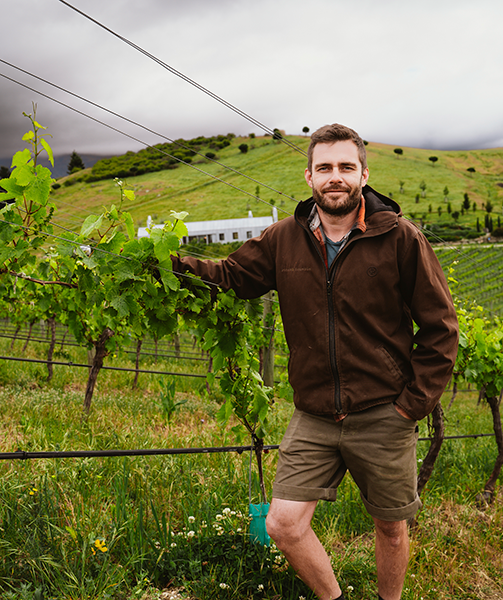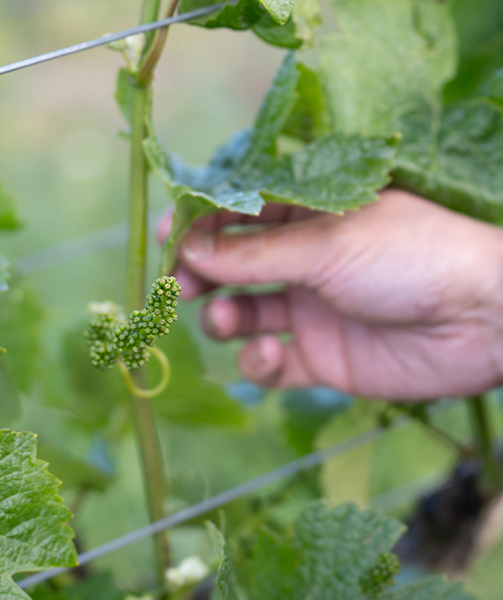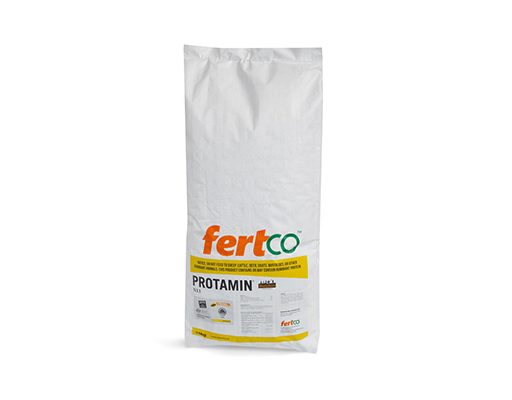Farmlands Technical Advisor Bevan Meiklejohn echoes the importance of canopy management for organic winemaking. “They need to be onto it. If they’re not, they’re not going to be organic growers for very long.” He says one of the key areas Farmlands is working on with organic winegrowers is plant nutrition. “It’s all about looking after plant health and soil health because the healthier the plant, the better equipped it to fight off pests and disease, so you can reduce that pressure,” he says. “We’ve also adjusted our spray programme. The frequency of applying sulphur used to be every two weeks, but we’re now aiming for every seven to 10 days to stay on top of disease.”
Bevan says that while organics is still quite a small part of the rural sector in New Zealand, there is a strong organic winegrowing presence in Central Otago. “We’re unique down here because we’ve got a really good environment here for organic growing. Probably the majority of Farmlands’ winegrower clients would be organic in Central Otago, whereas it would be the opposite for vineyards elsewhere in the country.”
Steven says having the support of other local organic winegrowers has been invaluable, as Domain Road embarks on its own organic journey. “I’m definitely very lucky to be surrounded by organic vineyards in Bannockburn. We all talk to each other about what works and what doesn’t work. In Central Otago we’re a very close-knit community, so I definitely look up to other organic growers in the area who’ve been doing it for 20-plus years.”
Domain Road has chosen to get certified through BioGro, which is owned by organic farming and growing industry group the Soil & Health Association of New Zealand. Steven says a lot of other organic growers in the area also use BioGro. “The main thing I have to prove is what inputs I put in, and that they are themselves certified by BioGro. There’s also a yearly audit process with BioGro, and you have to keep a record of the soil nutrition.”
Going organic could bring new sales opportunities, especially overseas. Steven estimates Domain Road’s sales split is about 60 percent export and 40 percent domestic, with a large proportion of local sales coming through their cellar door. “The main markets we are focused on are Australia, UK and a little bit in Japan. Although they may be niche, there are restaurants and liquor stores that specialise in organic wine, so becoming organic can open up new markets for us.”
Cromwell-based Domaine Thomson Wines, which was certified organic back in 2017, has seen strong domestic sales growth in recent years. “When Covid hit we just finished building a cellar door on the vineyard, which has really transformed the business,” says Domaine Thomson Viticulturalist, Simon Gourley. “It really helped the direct-to-consumer sales, building relationships and repeat customers. It’s good to have that facility on-site to showcase what we’re doing here as well.”
In terms of exports, Simon says Domaine Thomson has had considerable success in markets like Hong Kong and Singapore. “Australia is not huge for us; we’re focused more on Asia and the European market. Our owners [husband and wife team David and PM Hall-Jones] were living in Hong Kong until recently, so it’s easier to service that market, easier to travel and make contacts there.”
Simon joined Domaine Thomson in 2018, shortly after it went organic. He had previously worked at other wineries in Central Otago, and says his interest in horticulture was sparked as a child when visiting his grandparents’ berry farm. “From when I was young, I was very interested in science and farming. Viticulture is a good combination of the two; I can incorporate some chemistry and biology, but also go outside and not get stuck in the office. You get to see some results and you’re growing things.”
One of the main issues of growing using organic methods is weed control and the competition between the weeds and the vines, especially with the “pretty bony soils” of Central Otago, Simon says. “They don’t have a lot of resources for the vines to draw on, especially water, so trying to eliminate that competition between the vine and the weed is hard work in the organic sector. We rely heavily on the irrigation, but you’re also irrigating the weeds.”
He says they do a lot of mechanical weed control with tractor-mounted gear, although this doesn’t get everything. “This morning we spent the first couple of hours out working on large lucernes that the machine doesn’t rip out, they’ve got those woody taproots.” Nutrients are also a conundrum for organic growers, forcing them to think outside the square.
“We don’t have the luxury of buying super-phosphate and all those nice things that are quite cheap for how much nitrogen or calcium you are getting, so it’s all about sourcing our inputs.” Simon says Domaine Thomson does a lot of composting, including waste from harvest, prunings, chipped-up old willows and cow manure. “We’ve got a few cows on the sides of the hills, and in the past we’ve even brought in bulk cow manure to get a large volume of compost because it doesn’t go very far.”
One of the biggest issues for organic growers is the price gap between organic certified and non-organic inputs. Bevan hopes this will close as more growers go organic, potentially lowering prices on supermarket shelves for organic produce. “There are a lot of our suppliers that are in that space, and if they don’t have an organic offering we’re talking to them about it. One of our suppliers has just decided to drop their conventional and bring in organic-only for some of their products, because it’s one-size-fits-all and can be used by anyone.”
Bevan also doesn’t think the current cost-of-living crisis is likely to have a big impact on demand for organic wine. “I think people in the market to buy a premium bottle of wine, they’re the people who can afford it.” Long-term, he says demand for organics will continue to grow as awareness of sustainability increases. “The younger generation are really aware of looking after the environment, so we're finding ways to be kinder with our inputs.”






